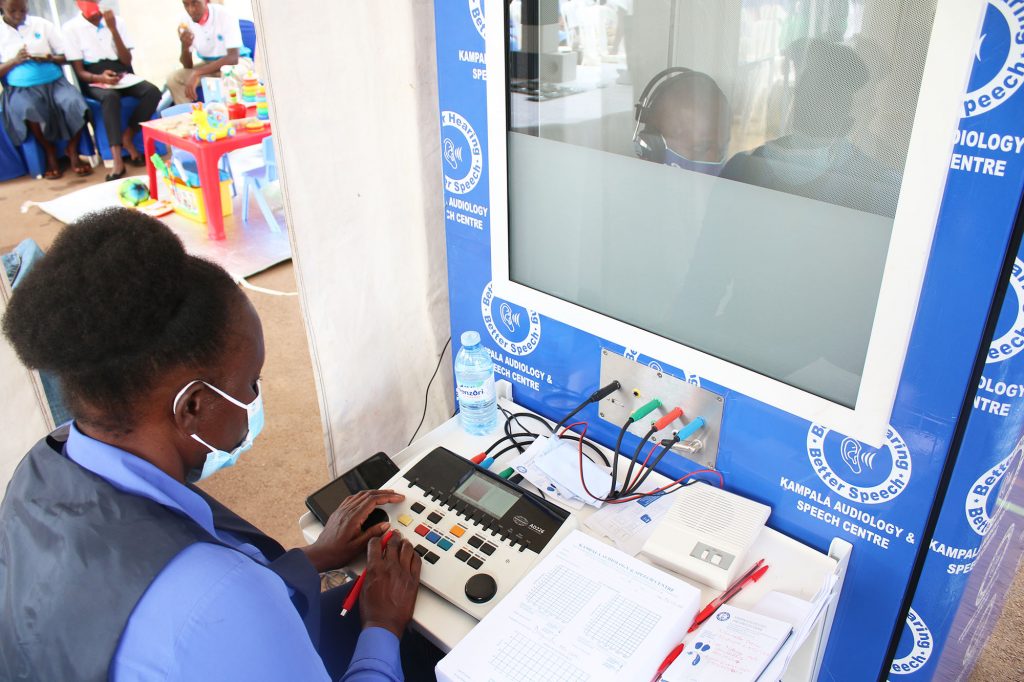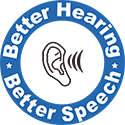How often should you have your hearing checked? It’s a question most of us probably ask ourselves at one point or another. A hearing test is an important part of your general health check. Hearing difficulties can contribute to social isolation, depression and lower quality of life.
Failing to address hearing problems can lead to auditory deprivation and a reduced chance at acclimatising to hearing aids. In the long term, this may lead to a lot of frustration at home and at work, and fewer interactions with your friends and loved ones.
A certified audiologist is a hearing specialist who will check your hearing as an optometrist would check your vision. Your audiologist can help you identify when you will need a hearing test, conduct a comprehensive hearing assessment, provide you with a diagnosis and if necessary – a treatment plan.
Sometimes it can be very obvious that you should get your hearing checked. Other times, you might be taken by surprise. If you experience any of the issues below, it may be about time to schedule a hearing exam with your local audiologist.
When do You Need to Schedule a Hearing Test?

1. It’s been a while since your last hearing assessment
Early detection of hearing loss and diligent monitoring is extremely useful for the long-term management of your hearing. Hearing tests should be a part of your routine health check-ups and be undertaken regularly, at least every three years.
Should you haven’t had a test yet, schedule a baseline hearing assessment with an audiologist near you today.
If you suspect that you or a loved one may suffer from a hearing impairment, don’t waste time… make sure you book an appointment. The benefits of early detection are numerous. Learning about your hearing and how to prevent further hearing loss, can buy you time before you need to consider getting a hearing aid.Your audiologist will discuss with you the strategies you can employ to hear better.
2. You have a history of noise exposure
If you are working in a noisy environment or have a hobby that exposes you to a lot of noise, such as going to concerts or shooting, you should book a hearing test and have your hearing assessed for damage caused by noise exposure.
Your audiologist can determine the degree of damage and whether the hearing loss can be expected to be permanent. If that’s the case, you might do well considering hearing aids. Nowadays, hearing devices are tiny, barely visible pieces of technology, that can do far more than simply help you hear better.
Your audiologist will program the hearing aids to turn up the sounds you can’t hear and leave those that you can, so you have a tailor-made solution for your hearing. You can also connect modern hearing aids to your tv, smartphone and computer.
3. A family member has hearing loss
If you have a family member with hearing loss, you may indeed be more susceptible to sooner or later have the same issue. Early detection of hearing loss can prevent full loss of hearing and lead to better patient outcomes. A hearing test with an audiologist will inform you about the state of your hearing health and put you in the best position to manage the early onset.
4. You are experiencing symptoms of hearing loss
If you are frustrated by other people “mumbling” and “not talking clearly these days” you may need to consider having a hearing test. Your audiologist will explain that hearing loss can be different for everyone.
Some letters of the alphabet may be heard very normally. You may be able to hear a pin drop, but letters like s, f and th may not be heard at all. That is why you think some people are mumbling. Your audiologist will test your hearing, explain your loss to you and discuss strategies to help you.
“It’s not you, it’s me”. If this sounds familiar, and you can’t understand your partner because they talk from another room, or are always walking away from you, it may be their poor communication skills! But how are you going to convince them of that? Typically, you aren’t – only a hearing test will prove you right. If communication is a difficulty in any capacity, see an audiologist to resolve the issue!
5. You are over the age of 60
If you are a pensioner, you are entitled to a free hearing test every three years. If you have not noticed a decline in your hearing, testing every three years will be adequate.
- Nearly 25 per cent of those aged 65 to 74 have hearing loss.
- 50 per cent of those 75 and older have disabling hearing loss.
Most pensioners would benefit from amplification, not only a hearing test. Research tells us that wearing hearing aids can reduce the number of falls around the home. It is thought that being more aware of your surroundings increases your safety. If you are a pensioner, it is time to call your audiologist and arrange a hearing test.
6. You are experiencing memory loss
A lot of research discusses the link between memory loss, dementia and hearing loss. It is said that reduced hearing leads to less socialising which limits stimulation to the brain and accelerates memory loss. When you can’t hear in group situations, you eventually stop going out.
Some studies have measured the cognitive decline in individuals with and without hearing aids. Those who wore their hearing aids experienced on average only a third of the cognitive decline of those who did not wear hearing aids. Hearing aids seem to increase stimulation in the brain which prevents cognitive decline.
Your audiologist can tell you how you compare to others in your age bracket, and when you are likely to need a hearing aid. You must commit to looking after your hearing in order to do the best you can for your brain.
7. You have diabetes
Diabetes is a disease that affects your blood circulation. Blood circulation can affect extremities such as fingers and toes, but did you know that your cochlea, also called the hearing organ, relies on a steady blood supply, too? Those with diabetes are therefore at an increased risk of suffering from hearing loss.
Your GP should refer you for a hearing test if you have been diagnosed with diabetes. Your audiologist can be an important part of your regular diabetes management. Make it part of your annual check.
8. You’re suffering from heart disease or immunodeficiency
The cochlea can also be affected by heart diseases, strokes or immune deficiencies such as arthritis. If you have any of these conditions your hearing may be compromised. In that case, a hearing test can be useful in establishing a baseline to monitor your thresholds in the future. Your audiologist will arrange this for you and enable you to monitor any changes in your hearing that may occur as a result of other health conditions.
9. You’ve had a cancer treatment
Hearing loss is a serious issue for cancer survivors. Surgery, chemotherapy and radiation take a heavy toll on the body. Each has a range of side effects, some mild and some severe. Some of those effects can include tinnitus and hearing loss. We recently published a comprehensive guide on hearing loss in cancer patients. Please continue reading to learn more about hearing loss in cancer survivors.
10. You’ve been on strong antibiotics
Some drugs can also affect your hearing. Chemical-related damage to the hearing is called Ototoxicity. Your audiologist will test your hearing and quickly be able to determine if and how the medication you are taking affects your hearing. They will be able to plan a way forward and make communicating with others easier for you.
In a Nutshell
As you can see, there are many signs that’ll tell you when it is time to get a hearing test. A professional audiologist is the only person who can offer you the depth of knowledge to address your hearing health, communication issues. They can put you on the right path forward. Contact us today and put these concerns to rest once and for all.
Source: Attune
- Why is regular hearing screening important?
- How to Stop and Prevent Your Ears from Ringing After a Concert

I have planned to visit your centre tomorrow for assessment and hopefully have new suitable hearing aid